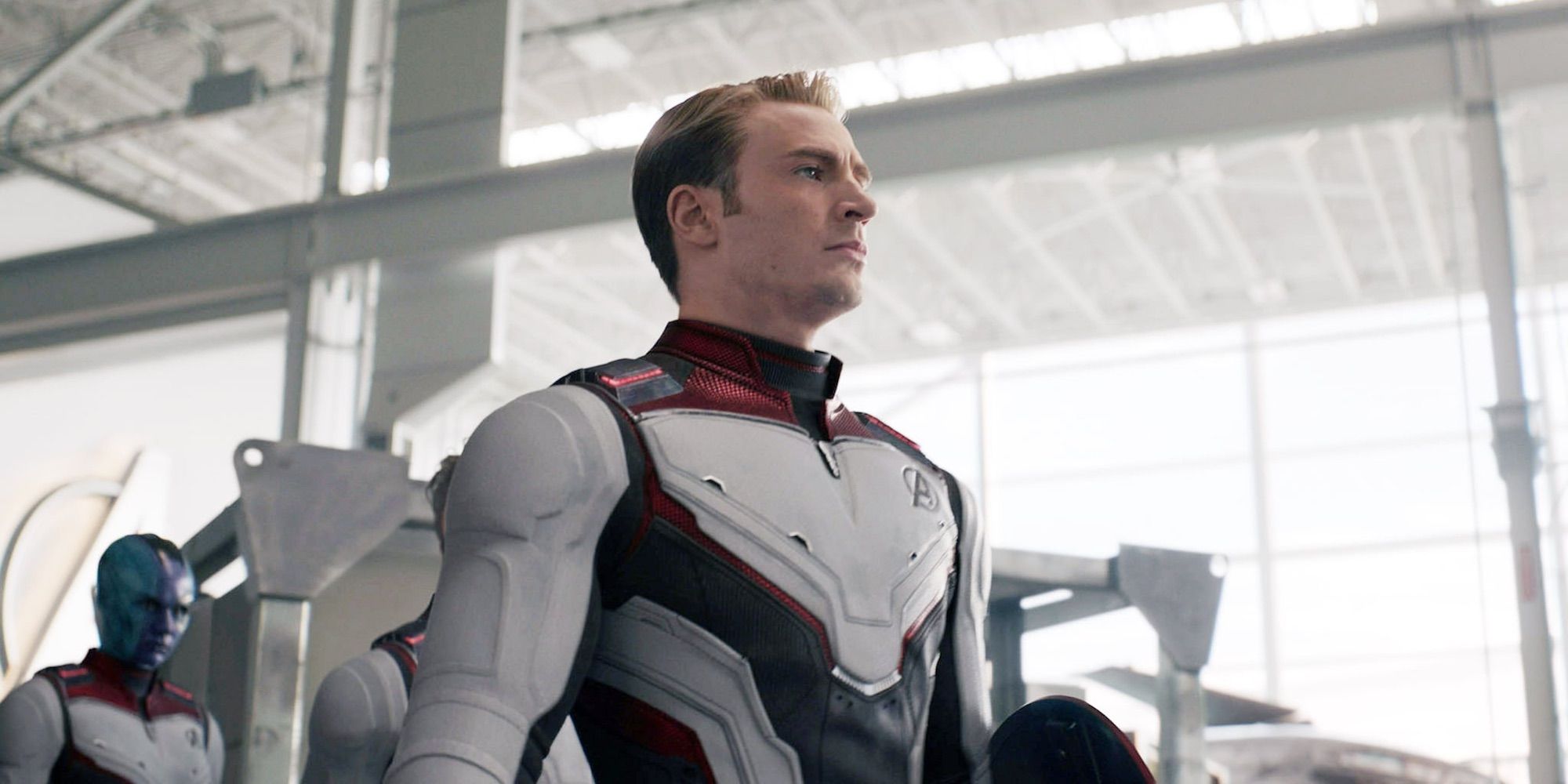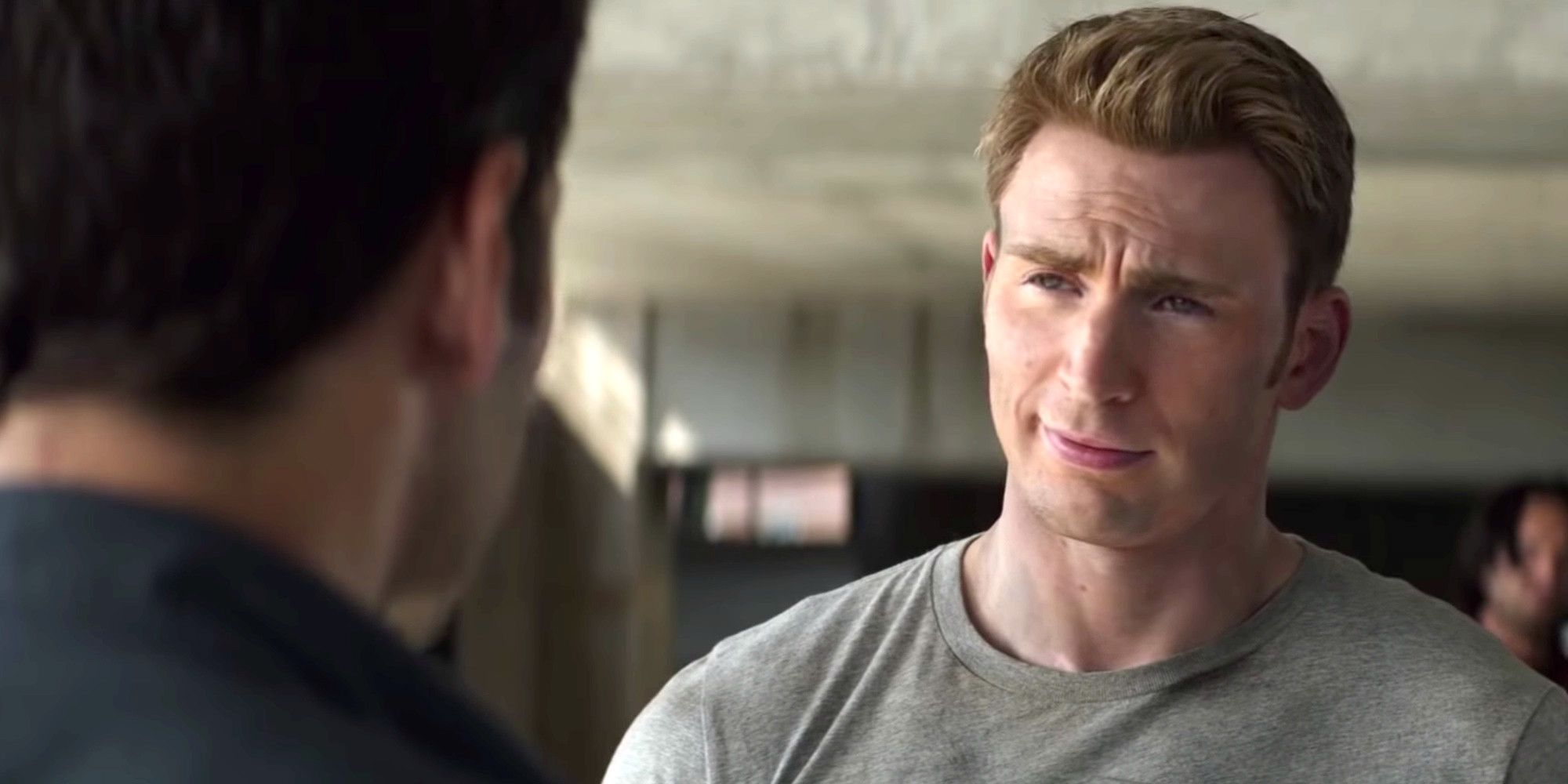Writer Stephen McFeely reveals early drafts Avengers: Endgame didn't include Steve Rogers aka. Captain America (Chris Evans) seeing Peggy Carter (Hayley Atwell) in the past. Peggy was part of Steve Rogers' story from the very beginning, meeting the young wannabe soldier from Brooklyn before his transformation into Captain America. When Steve awoke in the modern age at the very end of Captain America: The First Avenger, Peggy was his last link to the only life he'd known - until Captain America: The Winter Soldier revealed his best friend Bucky Barnes (Sebastian Stan) was still alive.
Since Avengers: Endgame ended Captain America's storyline, at least in terms of Steve's time representing the mantle, Peggy returned in a big way. Not only did directors Anthony and Joe Russo draw attention to the fact that Steve still carried Peggy's picture around, but Captain America ran into his former love while in the 1970s. The two don't actually interact. Instead, Steve lurks in her office, watching Peggy through a window as she goes about her business. The scene further develops Captain America's emotional storyline in the movie and sets up the end, in which Steve returns to the 1940s to get his dance with Peggy. There, he lives out his life with her instead of as Captain America. However, originally the story wasn't as cohesive as that.
Avengers: Endgame is now available on digital release, and along with plenty of other special bonus features, it includes a commentary track featuring directors Anthony and Joe Russo, as well as writers Christopher Markus and Stephen McFeely. During the scene in which Steve encounters Peggy during the 1970s, McFeely explained, "Our first draft did not have this. It would've been a shame. It's really lovely."
McFeely is right that not only is the sequence in the 70s heartbreaking and beautiful, it's actually key to Steve's emotional storyline and directly lays the groundwork for his ending. After all, Avengers: Endgame is essentially Steve Rogers', and Evans', swan song in the Marvel Cinematic Universe. After Steve returns to the past, he then reappears in the present to pass the Captain America mantle on to Sam Wilson (Anthony Mackie). It paves the way for the superhero's legacy to continue in the MCU even as Steve - and Evans along with him - hangs up his shield. All elements of Steve's story in Endgame are meant to serve his ending, and revisiting Peggy is key to that, especially since their relationship has taken a backseat ever since The First Avenger.
In fact, some would argue that based on how Steve's storyline has developed in the MCU, it still didn't make sense for him to return to the past and the life that could have been with Peggy. Since Steve learned that Bucky was alive in the modern era, their friendship has eclipsed the brief romantic connection between Steve and Peggy. And as fans have pointed out, since Steve's final scene is with Sam, he barely says goodbye to Bucky, which seems at odds with the character who betrayed Iron Man and whole governments in order to save Bucky in Civil War. But it's clear that Avengers: Endgame only had so much time to devote to each character, even if it did focus on Iron Man, Captain America and the other original Avengers more than any others - and the writers decided to focus Steve's journey on his return to Peggy.
In that case, it's certainly good that Steve ran across Peggy after time traveling to the 1970s, giving him a chance to consider what he missed out on and eventually inform his decision to return to the 1940s at the end. As McFeely says, it would've been a shame if this hadn't been included in the final cut of Avengers: Endgame.







